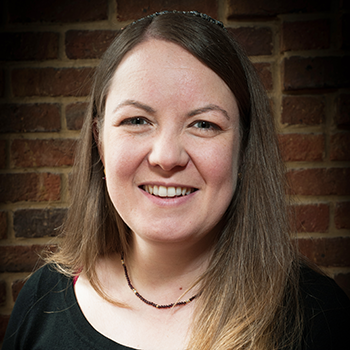“God said, ‘Let there be light’; and there was light. God saw that the light was good, and God separated the light from the darkness… God saw everything that God had made, and indeed, it was very good.” (Genesis 1:3-4, 31)
At the start of the Torah, creation unfolds not only with rhythm, but with purpose. God brings order out of chaos and pauses to reflect: light is good, the seas are good, the Earth is good. But only at the end of the chapter, when humanity is created, does God look at everything together and call it tov me’od (very good).
Europe’s most famous Jewish commentator, Rashi (1040–1105), explains that this final judgment is because of humanity itself. Human beings are capable of both blessing and destruction, yet their freedom is what makes creation complete. For Rashi, the world is not fully “very good” until it contains creatures who can choose, act, and partner with God in shaping what comes next.
Building on this medieval insight, modern Jewish thinkers continue to emphasize human responsibility. Franz Rosenzweig (1886–1929), one of Germany’s leading Jewish philosophers of the time, taught in “The Star of Redemption” that creation is not a finished event, but an ongoing process. God does not end creation in Genesis; it continues whenever human beings take responsibility for the world. For Rosenzweig, tov me’od names a creation that is open-ended, waiting for us to join in completing it.
Rosenzweig’s vision, though distinct from Reform ideology, resonated in a Germany that had already been reshaped by the birth of Reform Judaism. Confronted with emancipation, enlightenment scholarship, and the upheavals of modern Europe, pioneers like Abraham Geiger (1810–1874) and Samuel Holdheim (1806–1860) looked at inherited Jewish practice and asked a parallel question: What here is light? What can be judged good?
The early Reform pioneers looked at the inheritance of Jewish tradition much as one looks at the opening verses of Genesis: a swirl of light and shadow, possibility and constraint. They sought to bring order to that vast inheritance, uplifting what held enduring moral power and setting aside practices that obscured Judaism’s ethical and prophetic essence. In their sermons, prayerbooks, and institutions, they insisted that Judaism could renew itself. This renewal was not to be accomplished by discarding the past, but by clarifying its best truths and declaring them “very good” for a new age.
The American Reform Jewish theologian Eugene Borowitz (1924–2016) later gave voice to this impulse in covenantal terms. For him, covenant was not about obedience alone, but about dialogue. God’s invitation to Israel is incomplete without humanity’s response. Divine goodness becomes real only when people bring it to life in their choices. Drawing on the intellectual legacy of Reform Judaism’s German pioneers, Borowitz echoes both Rashi and Rosenzweig: creation’s goodness — and Judaism’s goodness — is realized through partnership.
Beginning again is never easy. More than 100 years after the death of the first pioneers of Reform Judaism, a new generation of pioneers, amongst them my father, made it their mission to resurrect Reform Jewish life in Germany after the Shoah. Like the first Reform pioneers, their bravery lay in their willingness to judge, affirm, and trust that a renewed Judaism could be called tov me’od. They modelled the courage not simply to preserve, but to create, acting as God’s partners in shaping a Jewish future for their children and grandchildren. They established a vibrant, modern Reform Jewish Movement for 21st-century Germany.
We see courage reverberates far beyond the Reform Movement in our day. The contemporary Orthodox Israeli philosopher Tamar Ross (b. 1938) has been deeply influenced by this idea of ongoing creation and revelation. In her work, “Expanding the Palace of Torah,” Ross argues that revelation is cumulative: each generation enlarges the Torah’s meaning by adding new voices and insights. What was once radical in 19th-century Germany has now entered the mainstream of Jewish thought: the conviction that God’s covenant is not frozen in the past, but unfolds through human participation.
Placed alongside B’reishit, Ross’s teaching is striking. God declares creation very good not because it is finished but because it has been entrusted to us. Humanity’s role in every generation is to expand creation’s promise, to begin again in our time.
So, as we return to B’reishit this year, what light must we name? Where must we separate darkness from goodness in Jewish life and in the world? How will we affirm what is tov me’od for our communities now?
The Torah’s first chapter is not only a memory of the world’s birth; it is a charge to every generation. To see creation as very good is to accept the courage of partnership. Reform Judaism was born from that courage in Germany nearly two centuries ago. Our task is to carry it forward: to create, to discern, and to begin again so that, in our time, the world may be judged tov me’od — very good.
Explore Jewish Life and Get Inspired
Subscribe for Emails

